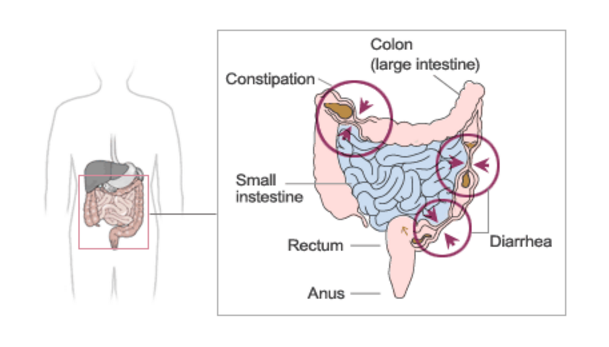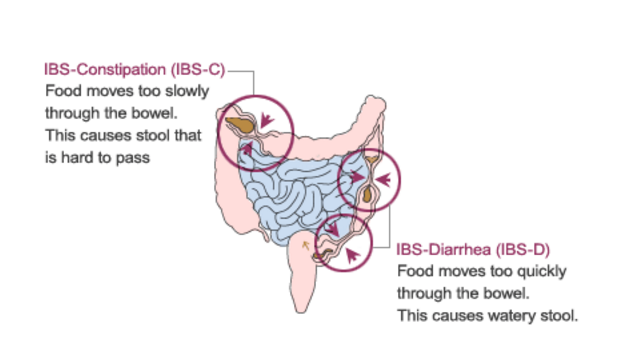Irritable Bowel Syndrome (IBS)
What is Irritable Bowel Syndrome?
Irritable bowel syndrome (IBS) is a common disorder of the intestines that leads to crampy abdominal pain, gassiness, bloating, and changes in bowel pattern. Through the years, IBS has been called by many names – colitis, spastic colon, spastic bowel, and functional bowel disease. Some people with IBS have constipation (difficult or infrequent bowel movements), others have diarrhea (frequent loose stools, often with an urgent need to move the bowels) and some people experience both. Sometimes the person with IBS has a crampy urge to move the bowels but cannot do so.
The colon muscle of a person with IBS begins to spasm after only mild stimulation. The person with IBS seems to have a colon that is more sensitive and reactive than usual, so it responds strongly to stimuli that would not bother most people. Many people believe that emotional conflict or stress plays an important role in IBS. While stress may worsen IBS symptoms, other factors also are important.


What Are The Causes of Irritable Bowel Syndrome?
Irritable Bowel Syndrome can be caused by:
- Certain medicines and foods may trigger spasms in some people. Sometimes the spasm delays the passage of stool, leading to constipation.
- Chocolate milk products or large amounts of alcohol are frequent offenders and can trigger attacks.
- Caffeine causes loose stools in many people, but it is more likely to affect those with IBS.
What Are The Signs And Symptoms of IBS?
Some people with IBS may experience crampy abdominal pain, gassiness, bloating and changes in bowel pattern. Some people with IBS have constipation (difficult or infrequent bowel movements), others have diarrhea (frequent loose stools, often with an urgent need to move the bowels) and some people experience both.
What Are The Risk Factors of IBS?
Women with IBS may have more symptoms during their menstrual periods, suggesting that reproductive hormones can increase IBS symptoms. Many people believe that emotional conflict or stress plays an important role in IBS. While stress may worsen IBS symptoms, other factors also are important.
How is Irritable Bowel Syndrome Diagnosed?
IBS is usually diagnosed after more serious organic diseases are excluded. The evaluation includes a complete medical history, a physical examination, and laboratory tests. Diagnostic procedures such as a flexible sigmoidoscopy or colonoscopy may be recommended for further evaluation.
There is no standard way of treating IBS. When lifestyle & dietary modifications and stress management do not provide adequate improvement, a number of different natural and prescription medications are available.



